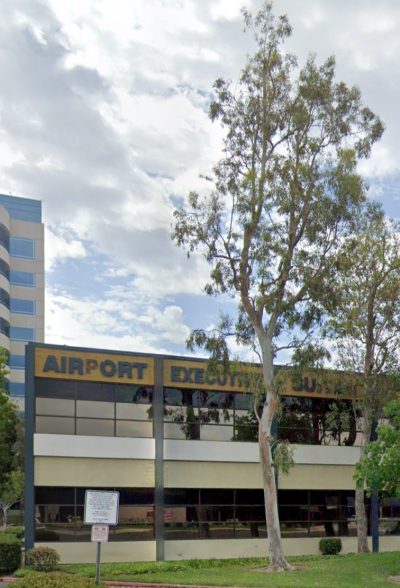IRS Delinquent FBAR Submission Procedures: Understanding and Resolving Late Foreign Bank Account Reporting via the FinCEN Form 114
IRS Delinquent FBAR Submission Procedures: Understanding and Resolving Late Foreign Bank Account Reporting via the FinCEN Form 114
Among the IRS’ published options for resolving FBAR noncompliance (failure to file) is the Delinquent FBAR Submission Procedures (DFSP). (But we discuss below a different pathway for voluntary disclosure of Foreign Bank Account Report noncompliance which we call a ‘reasonable cause’ FBAR disclosure – a disclosure method that resolves many FinCEN Form 114 delinquencies for the same zero penalty outcome as offered by the DFSP.
Delinquent FBAR Submission Procedures Rules
As stated on the IRS page listing the terms of the Delinquent FBAR Submission Procedures, if a US person who should have, but did not, timely file an FBAR wishes to resolve that noncompliance without paying an FBAR penalty, that person may do so under the DFSP providing the following conditions are met:
- The US person is not under a civil examination (e.g. audit) or criminal investigation by the IRS, and,
- Have not already been contacted by the IRS about the delinquent FBARs, and,
- Income from the foreign accounts (not reported via FBAR(s) as required) was properly reported on the person’s Form 1040 (personal income tax return), and,
- The US person files the delinquent FBAR(s) with a statement of explanation for late filing.
If the US person meets all those requirements, the IRS claims that it “will not impose a penalty for the failure to file the delinquent FBARs.”
The DFSP is a great solution for certain taxpayers who failed to file FBARs – but offers no help to any FBAR non-filer whose foreign account produced even a single penny of positive income, even where that unreported income wouldn’t have changed the US person’s tax due by even a dollar!
Are those unlucky FBAR non-filers stuck with paying an FBAR penalty?
Not necessarily.
This is because the Delinquent FBAR Submission Procedures is not the only method to disclose failure to timely file FBARs (or correct an incorrect or incomplete FBAR).
Instead, as provided in 31 USC 5321, if FBAR noncompliance was due to reasonable cause, then no FBAR penalty may be assessed by the IRS for a US person’s failure to file an FBAR on time (or for filing an incorrect or incomplete FBAR).
A ‘reasonable cause’ FBAR disclosure is not the same thing as an FBAR filed under the protective terms of the Delinquent FBAR Submission Procedures.
How is the Delinquent FBAR Submission Procedures Different From a ‘Reasonable Cause’ FBAR Filing?
The Delinquent FBAR Submission Procedures is unavailable to individuals who, as described above, did receive any amount of income from the unreported foreign accounts – even if that amount was a single penny, and even if the amount of income would have increased their tax owed to the US not even a single dollar. If that sounds absurd, you’re right. Thankfully, there is another option to avoid FBAR penalties.
A ‘reasonable cause’ FBAR disclosure is actually rooted in US law (specifically, Title 31 of the US Code), not a mere administrative program like the DFSP that seems to have been thrown together by the IRS without consideration of its illogical and unfair rules and effects (we discuss the DFSP’s illogic and inconsistency with US law below).
While the question of what constitutes reasonable cause in the context of a failure to file an FBAR on time (or file a correct or complete FBAR) could fill a multi-volume book, we can offer the following summary for the non-expert reader:
- Reasonable cause can be described as being non-negligent. To establish reasonable cause, the late-filer of FBARs must show:
- The US person had no possible reasonable means of becoming aware of the FBAR’s existence or had no possible reasonable means of becoming aware of the US person’s specific obligation to file the FBAR, and also,
- The US person was not reckless with regards to their unawareness of the FBAR’s existence or their specific obligation to file the FBAR. In simplified language, recklessness is closing one’s eyes to what is other manifestly obvious, even if one doesn’t literally know the fact (here, the obligation to file the FBAR)
An experienced FBAR disclosure attorney can gather the necessary facts and produce a legal analysis to determine if your FBAR noncompliance was due to reasonable cause and can avoid penalties. That attorney can then produce delinquent FBARs with an attached reasonable cause statement establishing that the legal standard of reasonable cause has been established with regards to the failure to timely file a complete and correct FBAR that is now, belatedly, being filed.
Is the Delinquent FBAR Submission Procedures Too Good To Be True?
Short answer: maybe.
The Delinquent FBAR Submission Procedures are on one hand highly illogical and on the other hand flatly inconsistent with US law. The Procedures’ simultaneous illogic and inconsistency with law give rise to substantial reasonable doubt as to whether they can be relied upon in all circumstances to which they implicitly apply.
The Illogic of the Delinquent FBAR Submission Procedures
The primary ‘limiter’ factor to the DFSP is that either the foreign accounts not timely reported on the FBAR either produced no income in the year in question, or the income the accounts produced was timely reported on the US person’s tax return.
The IRS’ own Internal Revenue Manual at 4.26.16.3.11 “Delinquent FBAR Filing Procedures” (published June 24, 2021), states as follows:
“A penalty will not be asserted for an account if it is determined that…the failure to report the account on a timely-filed FBAR was due to reasonable cause, and the account was properly reported on the delinquent FBAR.”
If you’re reading closely, you’ll note that this isn’t the rules of the Delinquent FBAR Submission Procedures, even though we think it’s clear that the IRM is attempting to described DFSP.
The DFSP rules published by the IRS make it clear that the DFSP is available in this extreme FBAR non-filer situation:
- A US person had multi-millions in a Swiss bank account, yet that Swiss account did not produce any income. That same US person took elaborate steps to disguise his ownership of that account so as to avoid US detection of that account and documentably denied to his income tax return preparer that he had foreign financial accounts. If that US person’s testimony were summonsed, that US person would admit without hesitation that he knew of the FBAR’s existence, knew he needed to file it to report this Swiss account, and nonetheless made the conscious and intentional decision to not file it.
If the rules of the Delinquent FBAR Submission Procedures are to be believed, this willful FBAR nonfiler may make a disclosure under DFSP and pay no FBAR penalty – because the unreported foreign account produced no income. This is utterly ludicrous.
It’s particularly ludicrous when it’s compared to a scenario where if, again, the DFSP rules are to be believed, there would be no FBAR penalty relief under DFSP:
- A newly-arrived US person, in his first full year of residing in the US, had pre-existing savings of just $11,000 USD-equivalent in a single account in his foreign country of origin. That single account produced $5 USD-equivalent of total interest, which was subjected to tax withholding at source in the country in which the account was held. This US person prepared his own tax return by hand, did not interact with any tax professional, and the tax return he filed did not include a Schedule B (and its Question 7a about foreign financial accounts). If (hypothetically) this $5 of total foreign-source interest had been included in the tax return in question, the US tax due on this return would not have increased by even a single dollar.
Again, if the rules of the DFSP are to be believed, this arguably wholly innocent FBAR nonfilter is barred from making a disclosure under DFSP – this despite the fact that on initial review, this US person has a very promising argument for reasonable cause. We have no idea why the IRS wrote the DFSP to allow any FBAR nonfiler to disclose under its protections – even those who are clearly willful – merely because there was no failure to report income from the unreported foreign account. We also have no idea why the IRS failed to mention on the same DFSP page that a zero-penalty reasonable cause disclosure may be possible for nonfilers with favorable facts who because of unreported income do not qualify for DFSP.
However, we note that the IRS page is not a statute, or a Treasury Regulation, or even a formal writing or ruling of the IRS like a Revenue Procedure or a Revenue Ruling (it’s merely a webpage last updated, at this writing, on August 22, 2024, and it could be removed at any time of the IRS’ choosing).
We do not think that the DFSP rules, as published on the IRS’ website, can be relied upon without much more thought and consideration. Moreover, even if the offered protective terms could be relied upon without limitation, we note that there is no binding statement that willful acts of FBAR noncompliance could not be charged criminally, or that the IRS guarantees not to assess associated FBAR penalties (like the FBAR record-keeping penalty in 31 USC 5322).
Already, we see, the DFSP offers less protection than it might immediately seem.
The Delinquent FBAR Submission Procedures Are Inconsistent With Statutory Law
If we took the IRS’ published DFSP guidance at face value, we find that one of its requirements – that there be zero income from the unreported foreign account, or that the unreported foreign account’s earnings have been timely and correctly reported on a Form 1040 personal income tax return, is in fact in clear contradiction to the actual law.
The DFSP makes the absence of earnings the critical ‘qualifying’ factor, while completely ignoring the nonfiler’s state of mind. FBAR noncompliance and its associated penalties, are set forth at 31 USC 5321 and associated Regulations. That statutory law anticipates that noncompliance is either (a) due to reasonable cause (meriting zero penalty), (b) negligence (meriting a penalty that, as of 2024, is $16,117 per year of violation), or (c) willful (meriting a penalty that, as of 2024, is the greater of 50% of the value of the noncompliant foreign accounts or $161,166).
On its face, DFSP completely ignores this three-tier penalty schema and grants a zero penalty outcome regardless of the FBAR nonfiler’s state of mind, offering relief solely to those whose noncompliance was associated with zero income underreporting.
For this reason, DFSP causes needless confusion among the population of individuals who failed to timely file an FBAR. Those who in fact had reasonable cause for their noncompliance, but nonetheless had some amount of unreported income from the unreported account (often, a nominal amount), read the DFSP rules as discouraging them from filing an FBAR offering a reasonable cause argument (which if accepted by the IRS, results in zero penalty).
Instead, many such taxpayers conclude – wrongly, we think – that their only method of voluntary disclosure (under the three options that the IRS offers) is the Streamlined Domestic Offshore Procedures or its ‘twin,’ the Streamlined Foreign Offshore Procedures.
We disagree with such an analysis.
As described above, FBAR nonfilers whose foreign accounts produced unreported income – even potentially substantial unreported income – are not ipso facto negligent FBAR nonfilers. Facts reflecting reasonable cause still matter because FBAR reasonable cause disclosures are another option for resolving the failure to file an FBAR.
We also note that the IRS’ website postings (here, the DFSP rules) do not have the force of law; while they are of course important to the practice of a knowledgeable international tax attorney, they do not eliminate or replace the actual law. And the actual law, to emphasize again, is favorable for taxpayers whose FBAR noncompliance occurred for reasonable cause, even if there was some amount of unreported income associated with the foreign account that was not timely reported on the tax return.
With these thoughts in mind, we contend that the DFSP – while an option to be aware of, does not in fact (as it seems to) guarantee the penalty-free resolution of certain cases of willful FBAR noncompliance. We also believe that DFSP confuses, misleads and discourages taxpayers from asserting (as the law provides) that their FBAR noncompliance occurred for reasonable cause (resulting, if this claim is accepted by the IRS, in zero penalty). The DFSP incorrectly implies that FBAR penalties can only be avoided if the account produced zero unreported income – and this is not in fact what the relevant US law provides.
Delinquent FBAR Submission Procedures Attorney Andrew L. Jones
If you have considered the Delinquent FBAR Submission Procedures and decided that you do – or more likely, do not – qualify for achieving a zero-penalty outcome with regards to delinquent or late-filed FBARs, you must consider the program’s two-fold problems (illogical on one hand, and inconsistent with the law, on the other hand) just recited.
Call Delinquent FBAR Submission Procedures attorney Andrew L. Jones at (415) 745-1924 to receive a free, thorough and completely confidential consultation about your case. You will talk directly with Andrew to determine your options for resolving your noncompliance, including resolving via an FBAR reasonable cause disclosure.
Experience matters, and working with our firm, which limits its practice exclusively to foreign asset voluntary disclosure cases, means no surprises and no learning on the job.








